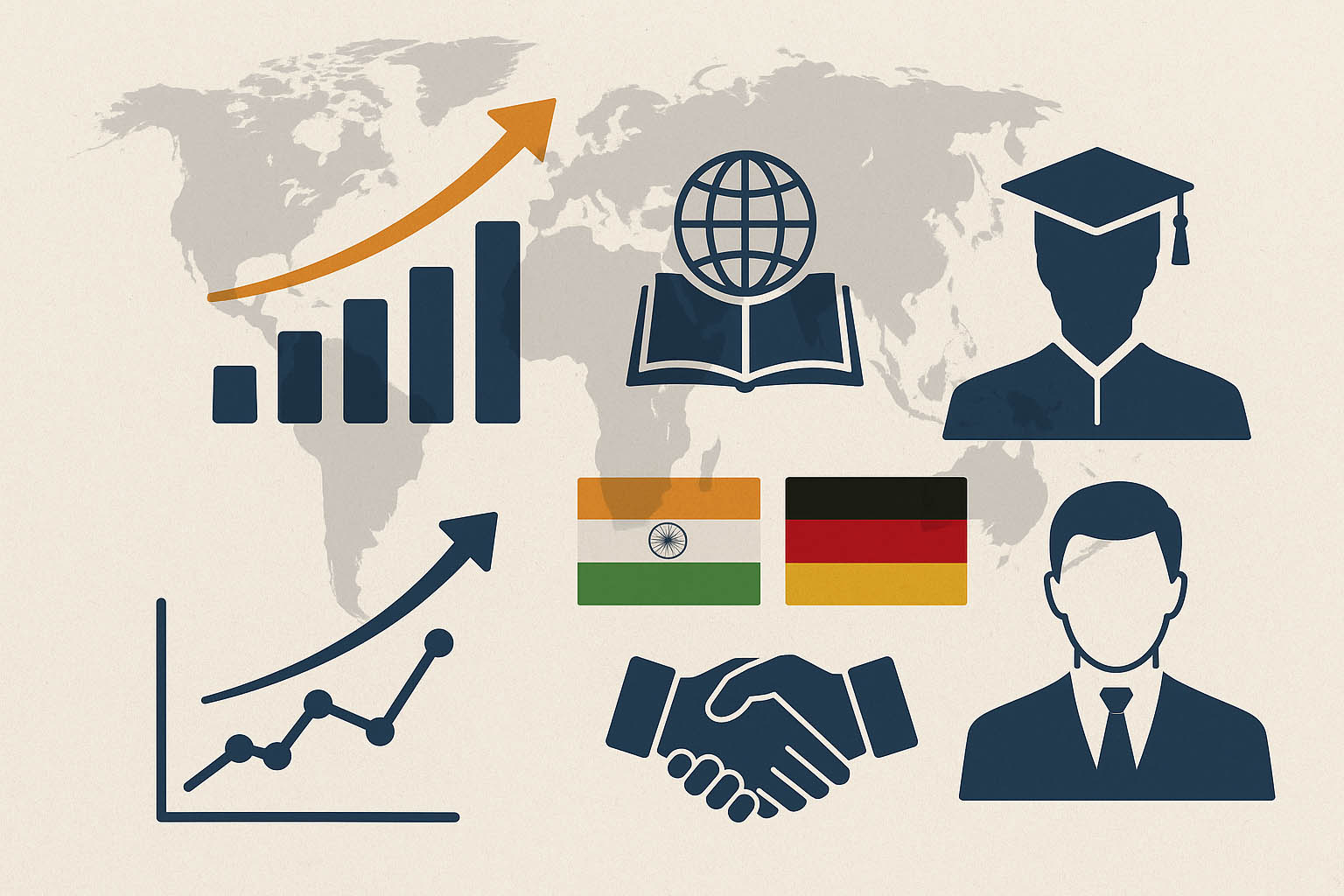A new Observer Research Foundation (ORF) study has underscored how the Indo-German education partnership is transforming global migration patterns, shifting the narrative from brain drain to brain circulation. The report, published on 29 September, argues that student mobility is no longer a loss of talent for India but a strategic instrument to strengthen human capital, deepen bilateral relations, and build transnational knowledge networks.
Indian Students Lead in Germany
The report reveals a striking rise in Indian enrolments at German universities. From 20,810 students in 2018–19, the figure has surged to 60,000 in 2025, with projections of 114,000 by 2030 if current trends continue. Indians now make up the largest international student group in Germany, with a clear preference for engineering (60%), management and social sciences (22%), mathematics (14%), and natural sciences (4%).
Germany’s affordability—marked by low or zero tuition fees at public universities—combined with strong industry linkages and favourable visa policies, has made it an increasingly attractive destination compared to the US, UK, or Canada, where tougher visa regimes and rising tuition fees have dampened growth.
Pathways from Education to Employment
According to the study, Germany is not only an academic hub but also a labour market destination. Post-study stay rates are high, with more than one-third of non-EU students who arrived between 2006–2011 still in Germany a decade later. Nearly a third of these naturalised residents are Indians.
The country’s acute skills shortage amplifies this trend. In July 2025, the Cologne Institute reported over 630,000 vacancies in engineering, healthcare, and STEM sectors, highlighting the demand for Indian graduates who can transition from education to employment via Germany’s 18-month post-study work visa.
Policy Framework: CMMPA at the Core
The 2022 Comprehensive Migration and Mobility Partnership Agreement (CMMPA) between India and Germany is central to this shift. The pact provides for 30,000 work visas annually, streamlined student pathways, vocational training collaboration, and even short-term cultural exchange programmes via “gratis visas.”
For Germany, this agreement secures a predictable supply of skilled talent to fill demographic gaps. For India, it ensures recognition of qualifications, protection of student rights abroad, and opportunities for research and faculty exchange through initiatives like GIAN, VAJRA, and SPARC.
Benefits for India: Building Human Capital Abroad
The ORF analysis stresses that India’s growing presence in Germany is not a one-way loss. Many graduates either return with enhanced skills or maintain strong transnational ties, contributing to startups, joint research, and diaspora networks. This “brain circulation” strengthens Indian industry and academia while also enhancing India’s bargaining power in shaping mobility frameworks with other countries.
Recommendations for India’s Education Diplomacy
The report suggests that India must refine its education and skills policy to fully leverage this opportunity:
- Harmonise qualifications with global standards to ease credit transfer and recognition.
- Integrate soft skills and adaptability into training to prepare students for Germany’s socio-professional context.
- Expand Indo-German dual programmes and vocational tracks in Indian institutions.
- Promote collaborative research and offshore campuses with German universities.
- Build alumni networks linking Indian graduates in Germany to domestic startups and academia.
- Such measures, the report argues, will allow India to convert outward migration into a strategic resource, balancing talent retention with international engagement.
A Strategic Shift
The ORF study concludes that Indo-German education diplomacy is emblematic of India’s new role in global migration. By fostering structured pathways, protecting students abroad, and ensuring knowledge flows back, India can transform international student mobility into a core element of its human capital strategy.
Read the full ORF report here: Beyond Brain Drain: Education Diplomacy in the Indo-German Partnership



